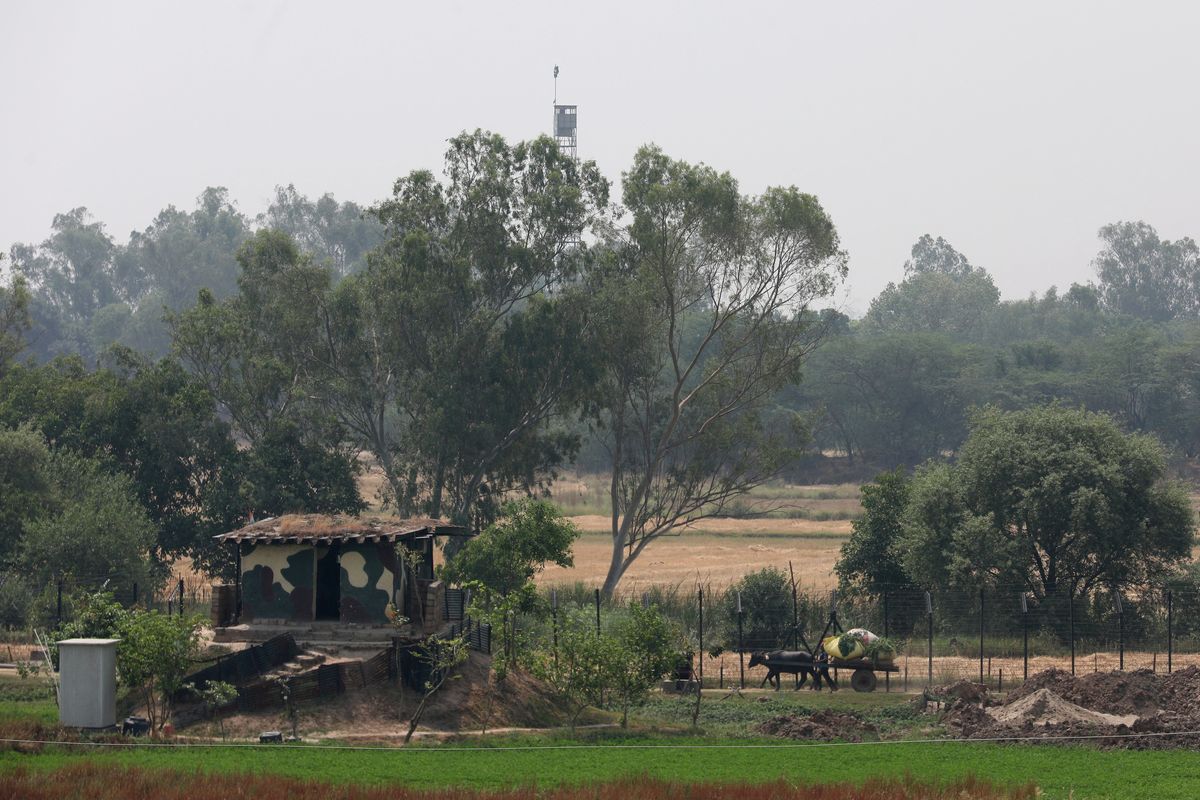UN nuclear chief in Tehran ahead of fresh Iran-US talks
Grossi and Eslami meet Thursday before crucial Rome negotiations on Saturday

Meeting described as 'strategically significant' by Iranian media
Comes one day after 'useful' discussions with Foreign Minister Araghchi
Iran has accumulated 274.8 kg of uranium enriched to 60 percent
UN nuclear watchdog chief Rafael Grossi met the head of Iran's atomic energy agency, Mohammad Eslami, on Thursday ahead of a fresh round of nuclear talks between Tehran and Washington.
Iranian and US delegations are to gather in Rome on Saturday for a second round of Omani-mediated negotiations, a week after the longtime foes held their highest-level talks since US President Donald Trump abandoned a landmark nuclear accord in 2018.
There were no immediate details on Grossi's meeting with Eslami, but Iran's reformist Shargh newspaper described his visit as "strategically significant at the current juncture".
Reuters
Iranian Foreign Minister Abbas Araqchi meets with International Atomic Energy Agency (IAEA) Director General Rafael Grossi in Tehran, Iran, April 16, 2025.



On Wednesday, Grossi met with Foreign Minister Abbas Araghchi, who led the first round of talks with US Special Envoy Steve Witkoff on Saturday.
Araghchi said he had had a "useful" meeting with the International Atomic Energy Agency chief.
"The IAEA can play a crucial role in peaceful settlement of the Iranian nuclear file in the coming months," he said.
Araghchi called on the IAEA chief to "keep the agency away from politics" in the face of "spoilers" seeking to "derail current negotiations". He did not elaborate.
Grossi said their meeting was "important".

"Cooperation with IAEA is indispensable to provide credible assurances about the peaceful nature of Iran's nuclear program at a time when diplomacy is urgently needed," he said on X.
Before heading to Iran, Grossi told French newspaper Le Monde that Tehran was "not far" from possessing a nuclear bomb.
Western governments have long accused Iran of seeking to acquire a nuclear weapons capability, an ambition Tehran has consistently denied.
A year after Trump pulled out of the 2015 nuclear deal, Iran began rolling back its own commitments under the agreement, which gave it relief from sanctions in return for IAEA-monitored restrictions on its nuclear activities.
In its latest report, the IAEA said Iran had an estimated 274.8 kilogram (605 pounds) of uranium enriched to up to 60 percent.
That level far exceeds the 3.67 percent enrichment ceiling set by the 2015 deal, but still falls short of the 90 percent threshold required for a nuclear warhead.
'Maximum pressure'
Since he returned to office in January, Trump has revived his "maximum pressure" policy of punishing economic sanctions against Iran.
In March, he sent a letter to Iran's supreme leader Ayatollah Ali Khamenei urging talks and warning of possible military action if Iran refused.
On Thursday, the New York Times reported that Trump had blocked an Israeli plan to strike Iranian nuclear facilities in favor of seeking a negotiated deal.
On Tuesday, Khamenei cautioned that while the talks with the United States had started well, they could yet prove fruitless.

"The negotiations may or may not yield results," he said.
'Constructive positions'
On Wednesday, Araghchi said Iran's enrichment of uranium was not up for discussion after Witkoff called for a halt.
Witkoff had previously demanded only that Iran return to the 3.67 percent enrichment ceiling set by the 2015 deal.
Araghchi said he hoped to start negotiations on the framework of a possible agreement, but that this required "constructive positions" from the United States.
"If we continue to (hear) contradictory and conflicting positions, we are going to have problems," he warned.
On Thursday, Iran's top diplomat headed to Moscow on a "pre-planned" visit to the Tehran ally.
The Kremlin said that Russia stood ready to do "everything" in its power to help resolve the standoff over Iran's nuclear program.
Popular
Spotlight
More from World
Pakistan denies Indian claims of attacks and downed jets, calls reports 'fake'
Pakistan's Foreign office says India is spreading false news to justify aggression













Comments
See what people are discussing